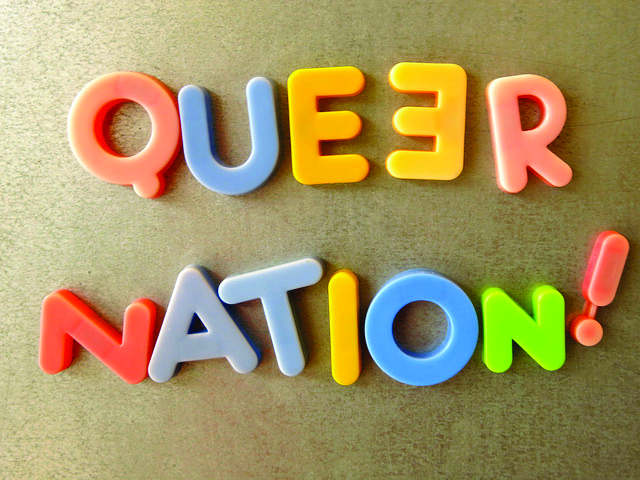
By Keely Coxwell

“I think that identity is … one of the most prevalent aspects of our world,” Kelly Johnson ‘19 said. “It is the way that we understand each other and the way that we understand ourselves.”
Johnson is a psychology major, a gender and queer studies (GQS) minor, and the co-lead and founder of “Quoffee and Quonversation.”
Johnson posted a petition for people to sign if they support GQS becoming a major, and 895 people signed it at time of publication.
“The role of the petition is to show the level support from the student body and from the community here,” Johnson said.
A senior survey from 2015 showed that 17 graduating students would have majored in GQS, according to research done by the GQS program.
“Education is the best way to bridge gaps and understand each other, lessen conflict; it promotes critical thinking and I think that since we are at a small liberal arts school the interest level is really high,” Johnson said.
“We you apply to come here you have to say what your interests are and a good chunk of students are expressing interest in GQS. So I think that if GQS is offered as a major it would definitely draw students to our university because it shows how much we prioritize inclusivity, activism, nd diversity overall,” Johnson said.
Colleges similar to the University of Puget Sound such as Lewis and Clark and Whitman offer permanently-staffed courses in the GQS program, according the research done by the GQS program.
This isn’t the first time work has been made towards making GQS a major.
“The archives in the library has documented requests from faculty for this to be a major … many times, going back decades,” Johnson said.
“There has not been any institutional commitments to it [in the past] and that continues to be true,” Greta Austin, the head of the GQS program, said. “In concrete terms what that means is that there are no tenure-track professors who have partial or full lines in the program. For next year, I don’t know who will teach most of the GQS classes.”
“It’s a tricky moment for the University because of the budget shortfall, and last year we did have a tenure-line search in which the position would be half in religion studies and half in GQS but that search did not result in a hire,” Austin said.
“With the amount of visiting professors that are in the program and will be leaving soon it is important to get this constructed and hopefully approved so that we can ideally offer them a position here so we don’t have to see all of our professors leave,” Johnson said.
According to a document made by the GQS department, “almost all of the required GQS courses in the past years have been taught by visiting professors and, currently, five of the six GQS classes for the next academic year have no professors to teach them.”
In order to start the process of creating a major, a curriculum needs to be constructed. Hopefully this will then bring professors.
“You can’t just present the idea of a major; you have to have a fully-formed curriculum, professors that want to teach the courses, reasons that it should be a major,” Johnson said. “There is a whole lot that goes into presenting this as a major and presenting this as an idea.”
“We are an academic institution and the University made a really important step when it made African American Studies (AFAM) a major. All the same arguments that support Latinx studies or AFAM major also apply to GQS,” Austin said. “The University addresses diversity as a personal issue, but we are an academic institution and it’s important to study gender, sexualities and feminism in academic settings. By privatizing these questions and treating them as personal, rather than interrogating them as subjects of intellectual inquiry, we as an institution continue to marginalize gender, feminist studies and sexualities.
“The University did hire people who have expertise in GQS areas, for example Renee Simms in African American studies, who does have a one-sixth position in GQS, and Regina Dutheley in English. Their expertise addresses both gender and race, and adds more dimensions of intersectionality that we really need,” Austin said.
“I think that on your campus there is an air of liberal, progressive and social-justice-oriented thought which is amazing and one of the things that I love about the campus here,” Johnson said.
“Offering a GQS major would provide broader perspectives on the way in which academic studies has traditionally been framed. There is a lot of work on how doing good science often depends on being aware of how gendered our assumptions are. GQS has broad-ranging intellectual implications for the University,” Austin said.
